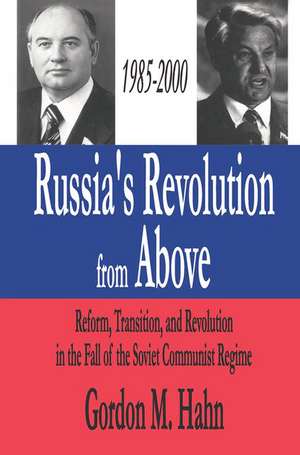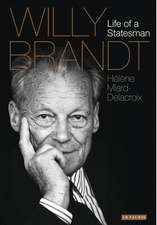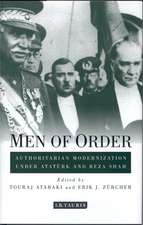Russia's Revolution from Above, 1985-2000: Reform, Transition and Revolution in the Fall of the Soviet Communist Regime
Autor Gordon Hahnen Limba Engleză Paperback – 16 apr 2018
| Toate formatele și edițiile | Preț | Express |
|---|---|---|
| Paperback (1) | 482.62 lei 6-8 săpt. | |
| Taylor & Francis – 16 apr 2018 | 482.62 lei 6-8 săpt. | |
| Hardback (1) | 1018.61 lei 6-8 săpt. | |
| Taylor & Francis – 31 dec 2001 | 1018.61 lei 6-8 săpt. |
Preț: 482.62 lei
Nou
Puncte Express: 724
Preț estimativ în valută:
92.35€ • 98.75$ • 76.100£
92.35€ • 98.75$ • 76.100£
Carte tipărită la comandă
Livrare economică 17 aprilie-01 mai
Preluare comenzi: 021 569.72.76
Specificații
ISBN-13: 9781138514348
ISBN-10: 1138514349
Pagini: 636
Dimensiuni: 152 x 229 x 36 mm
Greutate: 0.45 kg
Ediția:1
Editura: Taylor & Francis
Colecția Routledge
Locul publicării:Oxford, United Kingdom
ISBN-10: 1138514349
Pagini: 636
Dimensiuni: 152 x 229 x 36 mm
Greutate: 0.45 kg
Ediția:1
Editura: Taylor & Francis
Colecția Routledge
Locul publicării:Oxford, United Kingdom
Notă biografică
Gordon M. Hahn is a Senior Researcher at the Center for Terrorism and Intelligence Studies (CETIS), Akribis Group, San Jose, California.
Cuprins
Introduction The Model of Revolution from Above The Breakdown of Institutional and Political Unity The Organization of Political Groups in the Party-State and Society Dual Sovereignty from Above and the XXVIIII CPSU Congress The First Soviet Pact-Making Episode Gorbachev’s Turn to the Right Reaction Polarization and Revolutionary Crisis Politics The Nascent Soviet Transition Pact The Hardline August Coup The Revolutionary Seizure of Power and the Aborted Soviet Pact Tentative Conclusions About Russia and the Revolution from Above
Descriere
In Russia's Revolution from Above, 1985-2000, Gordon Hahn argues that the Russian transition from state socialism to democracy was a bureaucrat-led, state-based revolution managed by a group of Communist Party functionaries who won control over the Russian Republic (RSFSR) in the mid-1990s. The result is a weak society unable to nudge the state to concentrate on institutional reforms society needs for the development of a free polity and economy. Russia's Revolution from Above goes far in correcting the historical record and reconceptualizing the Soviet transformation.









